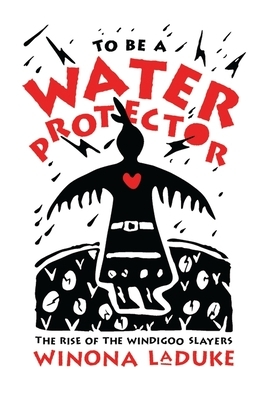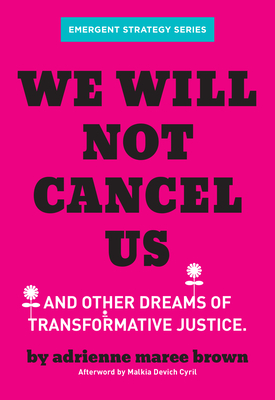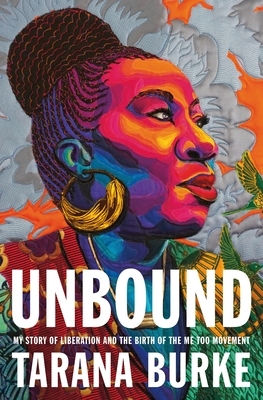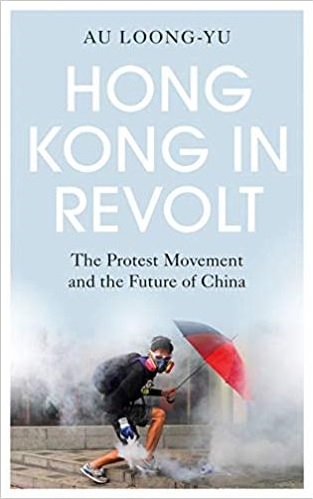This post is part of the Reading Writers of Color challenge hosted by Lonely Cryptid Media’s staff writer and editor, Dan Michael Fielding.
March, in the Northern Hemisphere, is the time of the spring equinox. In my home state of Minnesota we are still very much in the grip of icy winter, and it’s difficult to remember that in a few month’s time trees will be regrowing their leaves, flowers will be blooming, and the snow will melt again to water.
The reading writers of color challenge for March is to read a book that is social-justice oriented. This is building off momentum from last year, where the challenge in May was to read a book that was about a social justice movement or historical event. The guide introduced you to ten books on #StopAsianHate, a topic that remains relevant today.
For this guide the lens is a little broader. I have here five more books about various social justice movements to pique your interest. But you should also feel free to read books about social justice movements not listed here, and share those books in the comments sections so we can grow our reading lists.
What is a “social justice movement?” For the purposes of this challenge it is any movement which strives towards a just distribution of opportunity, wealth, and privilege. Social justice movements often strive to break down barriers to opportunity, to raise awareness of structural and institutional harm, and to effect change at a societal level.
It is important to focus not just on the race of the authors we are reading, but also on the content they are putting forth and the ideas they are presenting. The challenge for March was inspired by a memory of my African American Philosophy course in college. In that class we read from a variety of African American philosophers from the early days of this country to contemporary writers.
One debate that stands out was between W.E.B. Du Bois and Booker T. Washington. Both Du Bois and Washington were Black men who believed in the equality of Black people, but their approaches to that subject could not have been more opposite. Washington was a powerful political force who even fought the establishment of the NAACP. His views were, in a nutshell, accommodationist to the particular manifestation of white supremacy at the time.
This month’s challenge asks us to avoid reading the Booker T. Washington’s of the world and to instead read from the W.E.B Du Bois’s. Not to say that we shouldn’t read other works in order to understand their perspective, but there are no shortage of accommodationists who find their works elevated by the structures of racism within media production.
For this challenge try to pick books that are truly social justice oriented. Avoid books that say the status quo is acceptable, or which try to placate eager activism into moving more slowly. Avoid books which claim nothing can be done to solve problems, or which are dismissive of people taking the “wrong sort” of action.
Instead, enjoy books which call for liberation and imagine new possibilities. Read about people taking real action and hear their perspective on what went wrong and what they would do differently next time. Read about the real challenges that those involved in social justice movements face, and what keeps them coming back each day regardless.
To get us started here are five books about five distinct (yet always interrelated) social justice movements:

The Be a Water Protector: The Rise of the Windigoo Slayers by Winona LaDuke
Winona LaDuke is an Anishinaabekwe (Ojibwe) enrolled member of the Mississippi Band Anishinaabeg and a leader in cultural-based sustainable development strategies, renewable energy, sustainable food systems and Indigenous rights. To Be a Water Protector benefits from her fantastic storytelling ability as she outlines the global Indigenous movement to protect the Earth and water and the lessons we all can learn from their struggle.

Crip Kinship: The Disability Justice & Art Activism of Sins Invalid by Shayda Kafai
Shayda Kafai is a professor of Gender and Sexuality Studies at California State Polytechnic University, Pomona’s Ethnic and Women’s Studies Department who describes herself as a “queer, disabled femme of color.” In Crip Kinship, she explores Sins Invalid, a San Francisco-based performance art project working for disability justice. The work of Sins Invalid reimagines what it means to be queer and disabled and presents new and exciting lessons for empowerment.

We Will Not Cancel Us by adrienne marie brown
In We Will Not Cancel Us, adrienne marie brown explores the origins of “cancelling” and “calling out” and their origin as ways for marginalized people to protect themselves from harm amidst claims that “cancelling” has gone too far. brown deftly navigates past disingenuous complaints from those doing harm and instead hones in on the purpose of the practice itself, asking does this practice serve us? Does it prefigure the sort of world we want to live in? And, if it doesn’t, how do we seek accountability and redress for harm in ways that reflect our values?

Unbound: My Story of Liberation and the Birth of the Me Too Movement by Tarana Burke
Tarana Burke is one of the originators of the #MeToo Movement which resulted in an incredible groundswell of women coming forward about the sexual abuse they had experienced. In this memoir she connects her personal history to broader social movements as she discusses her own journey of healing and advocacy.

Hong Kong In Revolt: The Protest Movement and the Future of China by Au Loong-Yu
The people of Hong Kong exploded onto the national stage as they battled an extradition bill. Their activism and resistance reflects their precarious position, caught in the politics between China and the UK. Loong-Yu details the resistance of Hong Kong’s citizens as they struggle to establish a Hong Kong identity of inclusivity and openness.
What books about social justice movements have you read and enjoyed? What are you planning to read this month? Share in the comments below so we can grow our reading lists!
We’ve gone ad free and we need your help to stay that way! Consider making a donation to Lonely Cryptid Media to help keep our site ad free and support our mission to elevate queer, pro-feminist, and anti-racist media.

I’m not sure, if my pick for this month is really fitting in this category, but I will read Paradise by Toni Morrison. (There is also a book about queer-feminist punk, that I want to read this month. However, the author is white, so it doesn’t fit into this challenge. But I think these books in combination will make a well balanced read.)
LikeLiked by 1 person
Sounds like an interesting combination of books! Happy reading. 🙂
LikeLike
I plan to read Atul Gawande’s “Being Mortal,” a book urging for a change in how medical professionals treat end-of-life patients. It is a highly acclaimed book that I already own a physical copy of, so I’m excited to finally crack it open.
LikeLike
What an interesting book. Thanks for sharing!
LikeLike
For this month I’ll be reading (or rather finishing) the book How We Go Home: Voices From Indigenous North America edited by Sara Sinclair. 🙂
LikeLike
Finishing books is great, too. Do you have a favorite chapter from the book so far?
LikeLike
I plan on reading “As Long As Grass Grows: The Indigenous Fight For Environmental Justice, From Colonization to Standing Rock.” by Dina Gilio-Whitaker.
LikeLiked by 1 person
Sounds like a fascinating book. Thanks for sharing!
LikeLike
My plan is _A Bigger Picture: my fight to bring a new African voice to the climate crisis_ by Vanessa Nakate
LikeLiked by 1 person
I’m going to read Teaching to Transgress: Education as the Practice of Freedom, by bell hooks.
LikeLiked by 1 person
I’m reading Women, Race & Class by Angela Y. Davis, which was a fortuitous Little Free Library find for me. (It was donated via @LittleFreeDiverseLibraries on Instagram and when I’m done reading I will put it back for someone else to read/learn from it!)
LikeLike
I loved that book when I read it a few years ago. Hope you enjoy! Love the free library system. 🙂
LikeLike